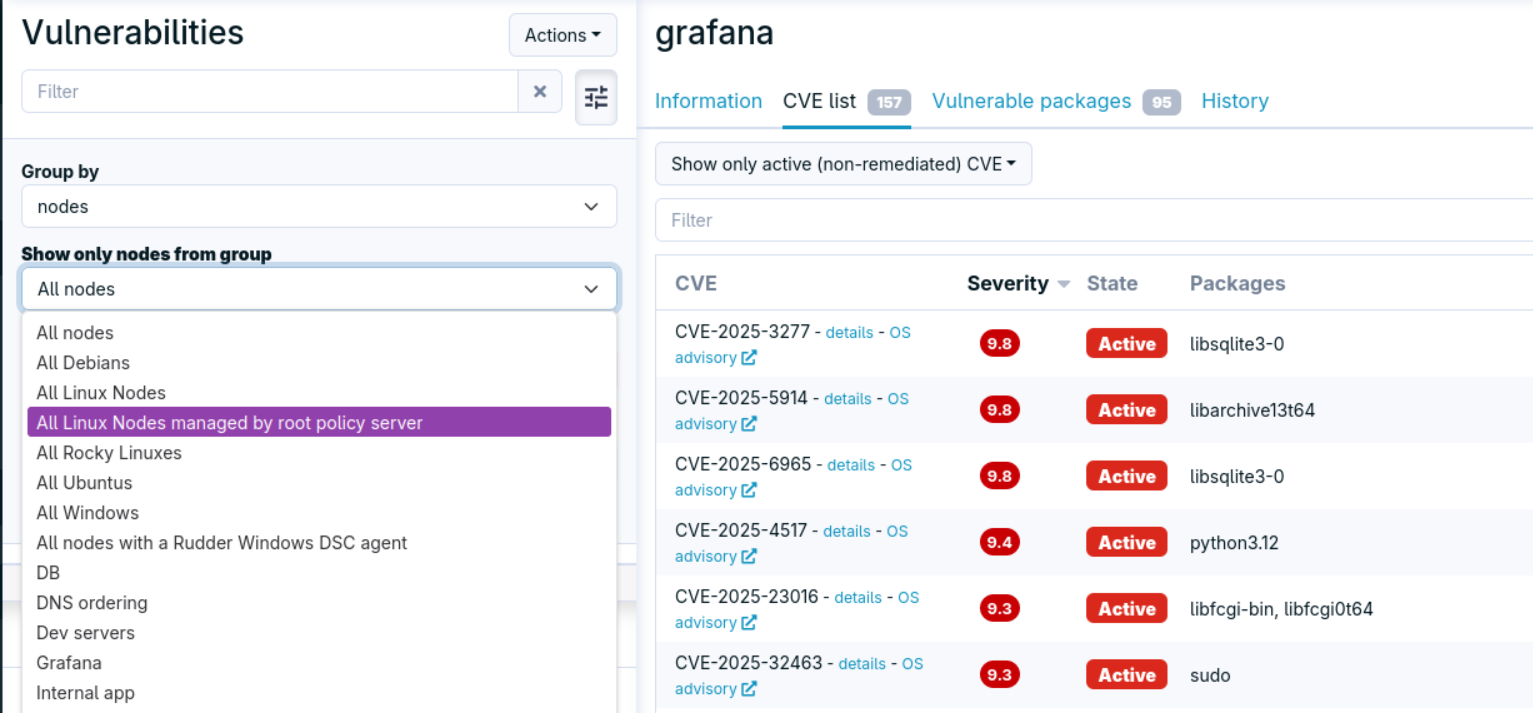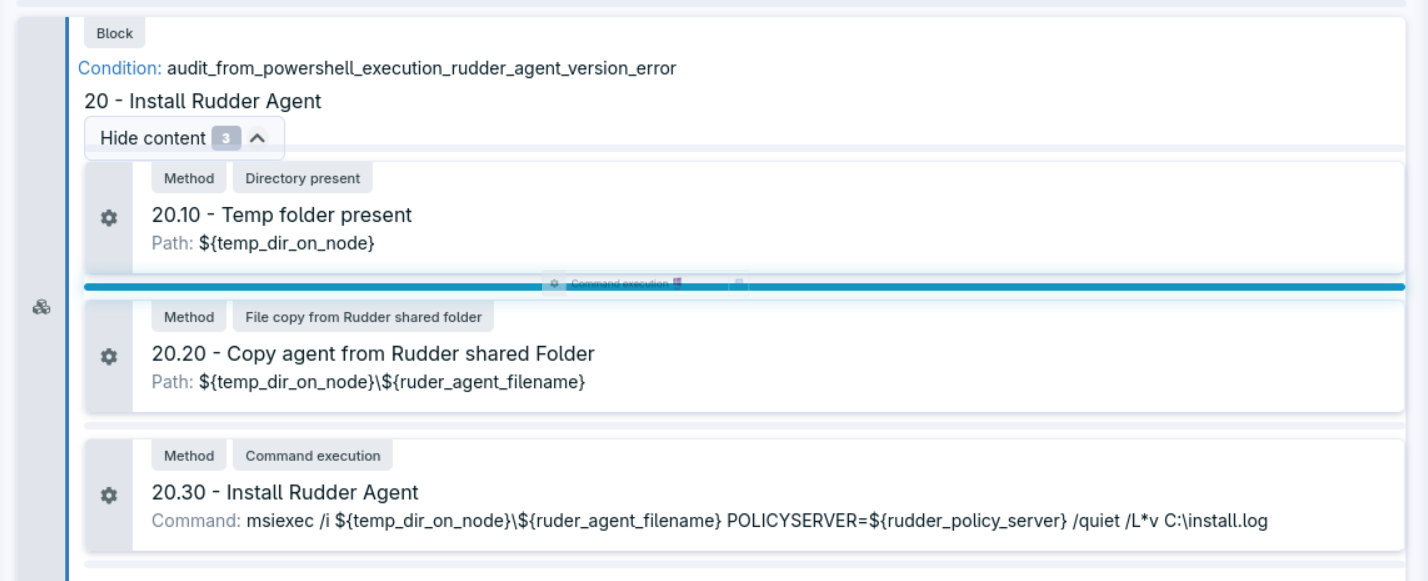Change logs for Rudder 9.0
New operating systems supported
Debian 13 and Red Hat Enterprise Linux/Rocky/AlmaLinux/Oracle Linux 10 are now fully supported by Rudder 9.0, both as server and agent OS.
Security benchmarks
The security benchmarks feature is officially out of beta, and comes with many improvements over the 8.3 version. They include a new visualization interface by benchmark, and a detailed view by item or by nodes.

CVE by group
The vulnerability management interface now allows filtering by group, making it easier to get an overview of the risk by categories of nodes.

Patch campaign hooks
It was already possible to run actions locally on the nodes before and after the upgrades. We added an additional mechanism, on the server side, with action running globally for each patch management event. It is possible to trigger actions before the start of an event or after it finished.
Technique editor
The interface was improved with a redesigned drag-and-drop behavior and other quality of life improvements.

CSV export for tables
We added CSV export to several tables in the interface, allowing easy reuse of Rudder data in other contexts (in addition to the HTTP API).

[Technical preview] HTTPS communication
It is now possible to use HTTPS for policy download on Linux. It allows disabling the custom protocol (by default on port 5309) and to only use HTTPS for all communications.
When in HTTPS-only mode, a few features are disabled:
-
Remote run on Linux agents
-
Recursive file copies from the server
-
Relays require the rsync synchronization mode
This mode will become the default once the remaining limitations are lifted.
[Technical preview] Certificate validation
When in HTTPS-only mode, it is possible to switch all HTTPS communications to use standard certificate validation instead of the default pinning-based mode. It requires managing the HTTPS certificates with a user-managed PKI. The certificate authorities can be specific to Rudder or system-wide.
Improved template management
We introduced a versatile templating method, based on a multi-platform module running on both Linux and Windows agents. It allows using the existing template engines, mustache and jinja2, plus a new option, minijinja, which provides most jinja2 features with a fast native implementation, without external dependencies.
This method also allows passing a JSON object as data for the template, as an alternative to the global agent context.
It also improves reporting, with a diff-like display of changes and non-compliances.
Improved commands method on Linux
The is a new method for running commands on the Linux agent, name Command execution options. It is based on a new module, and supports much more options than existing ones, including timeout, user/group/umask/ structured output, behavior in audit mode, and more!
Agent can run with /var mounted with noexec
It is now possible to run Linux agents on systems where the
/var partition is mounted with the noexec options,
as recommended by several hardening guides.
Safer local passwords
The default hash algorithm is now argon2id, and bcrypt is still supported. Deprecated unsafe algorithms support is dropped.
Under the hood
-
The strict
Content-Security-Policyheader configuration is now enabled everywhere. -
The backend code base was migrated to Scala 3 (from 2.13 to 3.7).
-
The
relayddaemon, written in Rust, was updated to thehyper1.0 stack. -
All Linux methods were migrated to a new reporting implementation based on stable unique identifiers, which will make UX improvements possible in future versions.
💾 Installing, upgrading and testing
-
Install docs for Debian/Ubuntu, RHEL/CentOS and SLES
Main changelogs →